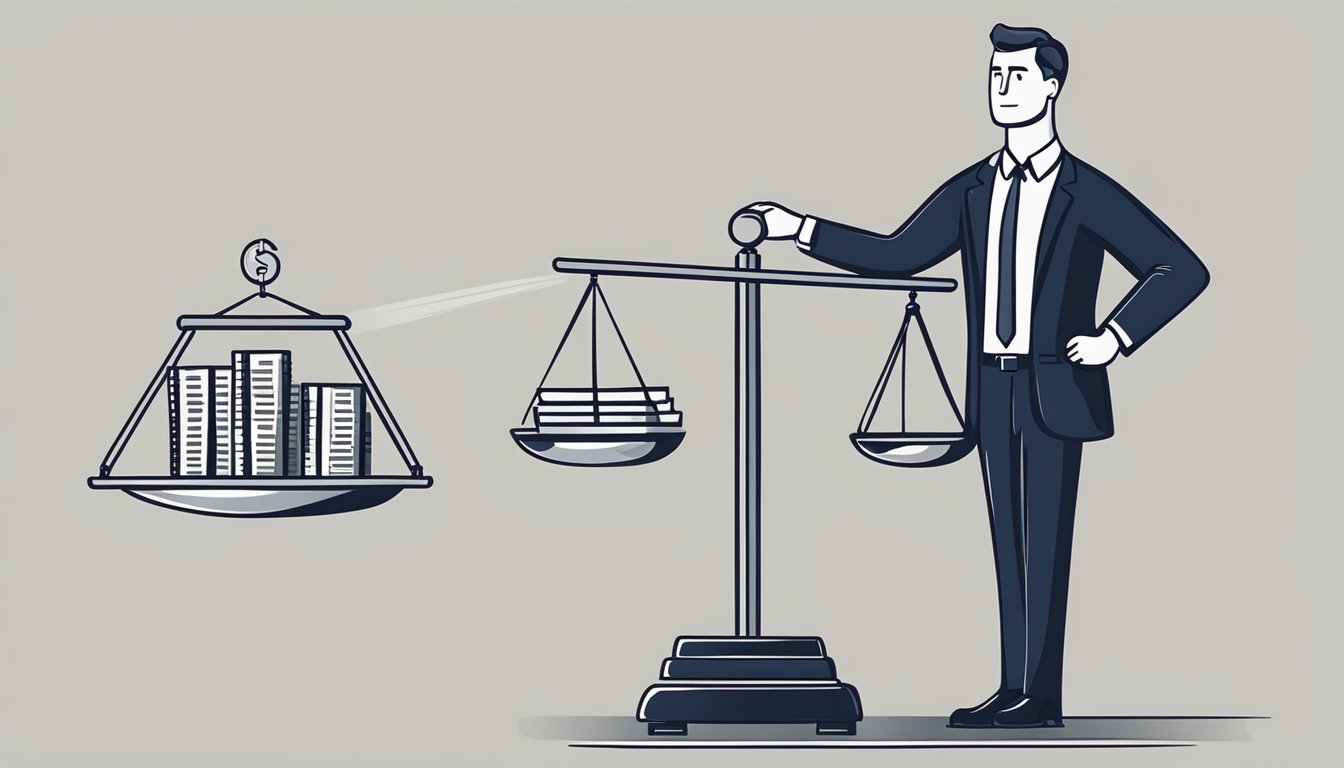Business loans can be an excellent way to finance your business’s growth and expansion. However, like any financial decision, there are both advantages and disadvantages to consider. In this article, we will explore the pros and cons of business loans to help you make an informed decision about whether this type of financing is right for your business.

One of the main advantages of business loans is that they can provide you with the capital you need to grow your business. With a business loan, you can invest in new equipment, hire more staff, or expand your premises. Additionally, business loans often come with lower interest rates than other forms of financing, such as credit cards or lines of credit.
Despite these advantages, there are also some potential disadvantages to consider. One of the main drawbacks of business loans is that they can be difficult to qualify for, especially if you are a new business or have a poor credit score. Additionally, taking on debt can be risky, as you will need to make regular repayments even if your business does not perform as well as you had hoped.
Key Takeaways
- Business loans can provide the capital you need to grow your business.
- Business loans often have lower interest rates than other forms of financing.
- However, business loans can be difficult to qualify for and taking on debt can be risky.
Advantages of Business Loans

If you are a business owner looking to start or grow your business, obtaining funds through business loans can be a great option. Here are some of the advantages of business loans that you should consider:
Access to Capital
One of the most significant advantages of business loans is that they give you access to capital, which can be essential for starting or growing your business. With the help of business loans, you can invest in equipment, expand your business, hire new employees, and more.
Favourable Terms
Business loans offer favourable terms such as lower interest rates and long-term financing, which can help you save money in the long run. You can also obtain term loans, SBA loans, lines of credit, and other forms of financing that can be tailored to your business’s specific needs.
Credit Building
Business loans can also help you build your business credit, which is essential for future financing opportunities. By making timely payments on your loans, you can improve your credit score and credit history, which can help you qualify for better financing options in the future.
Diverse Options
There are many different types of business loans available, and you can choose the one that best suits your needs. You can obtain loans from banks, financial institutions, online lenders, and alternative lenders. You can also choose from equipment financing, invoice financing, and other forms of financing that can help you achieve your business goals.
Ownership Retention
One of the significant advantages of business loans is that you can retain control and ownership of your business. Unlike equity financing, where you have to share profits and control with investors, business loans give you the funds you need while allowing you to maintain full control over your business.
In conclusion, business loans offer several advantages to business owners looking to start or grow their businesses. By obtaining funds through business loans, you can invest in your business’s growth and achieve your business goals.
Disadvantages of Business Loans

When it comes to business loans, there are several disadvantages that you should consider before applying for one. Here are some of the downsides to keep in mind:
Debt Obligations
One of the biggest disadvantages of business loans is that they create debt obligations. When you take out a loan, you are agreeing to repay the principal amount plus interest over a set period of time. This means that you will have to make regular payments, which can put a strain on your cash flow.
Risk of Collateral
Many business loans require collateral, which is an asset that the lender can seize if you default on the loan. This can be risky, as it means that you could lose personal assets such as your home or car if you are unable to repay the loan.
Strict Eligibility
Business loans often have strict eligibility requirements, which can make it difficult for some entrepreneurs to qualify. Lenders typically look at factors such as your credit score, financial statements, and tax returns to determine whether you are a good candidate for a loan.
Potential for Higher Costs
Business loans can come with higher costs than other funding options. In addition to interest rates, you may also be required to pay fees such as origination fees, application fees, and prepayment penalties. This can add up over time and make the loan more expensive than you initially anticipated.
Operational Limitations
Taking out a business loan can also come with operational limitations. For example, if you take out a loan to purchase equipment, you may be limited in terms of how you can use that equipment. Additionally, if you take out a loan to fund a specific project, you may be required to use the funds for that project only.
Overall, while business loans can provide much-needed funding for your business, it’s important to carefully consider the downsides before applying. Make sure you understand the application process, eligibility requirements, and repayment terms, and be prepared for the potential challenges that come with taking on debt.
Frequently Asked Questions

What could be the potential drawbacks of taking out a business loan?
Taking out a business loan can be a significant financial commitment that may involve high-interest rates and fees. It’s essential to carefully consider the repayment terms and the impact on your business’s cash flow before committing to a loan. Additionally, if you default on your loan payments, it can negatively impact your credit score and financial stability.
How might a business benefit from securing a loan?
Securing a business loan can provide the necessary capital to expand your business, hire new employees, purchase inventory, or invest in new equipment. Loans can also help businesses manage cash flow and provide a financial cushion during slow periods.
What are the financial risks associated with business loans?
The primary financial risk associated with business loans is the potential for defaulting on the loan. If you’re unable to make loan payments, it can negatively impact your credit score and financial stability. Additionally, if you secure a loan with collateral, such as property or equipment, you risk losing those assets if you default on the loan.
Can obtaining a business loan positively impact cash flow and growth?
Yes, obtaining a business loan can positively impact cash flow and growth. Loans can provide the necessary capital to invest in new opportunities, expand your business, and increase revenue. However, it’s essential to ensure that the loan repayments won’t negatively impact your business’s cash flow.
In what ways might a business loan affect a company’s credit and financial stability?
If you make your loan payments on time, it can positively impact your business’s credit score and financial stability. However, if you default on the loan, it can negatively impact your credit score and financial stability. Additionally, if you use a personal guarantee to secure the loan, it can impact your personal credit score and financial stability.
What should businesses consider before deciding to apply for a loan?
Before deciding to apply for a loan, businesses should consider their current financial situation, cash flow, and repayment ability. It’s essential to research and compare loan options to find the best fit for your business’s needs. Additionally, it’s crucial to read and understand the loan terms, including interest rates, fees, and repayment terms, before committing to a loan.




